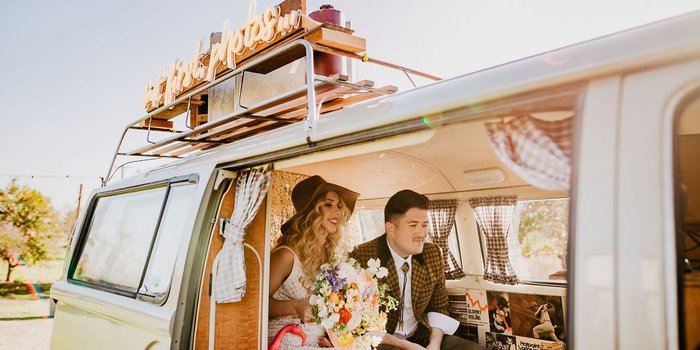That’s what experiential marketing is all about. Of course, unlike Google, you probably don’t have millions of dollars to test out on an experiential marketing campaign. So, how do you know make sure those marketing dollars get put to good use and that your experiential marketing tactic will be a success? Not sure if experiential marketing is right for your brand? Entrepreneur: How has experiential marketing helped your business? Everything from the way you talk to clients, to what they experience visually, to the feeling they walk away with. Entrepreneur: Experiential marketing has a lot to do with senses -- what you feel, hear, touch. Businesses are having to get a lot more savvy to create experiences for the consumer in order to grab their attention. But even more than that, the uniqueness and the attention to detail in the experience we've crafted is what people talk about. If you can refine every last bit of your experience and make it as thought out and specific as possible, it will resonate with its audience and impact them in a way that’ll keep them talking.

From guerilla marketing tactics to tapping into the world of influencers, it can be hard to stand out from your competitors today. Companies are having to find unique and out-there marketing strategies to get their brand names known. One popular method that’s picking up traction is experiential marketing. Because as a brand, instead of marketing to the consumer, why not let the consumer market you?
That’s what experiential marketing is all about. By engaging consumers in brand-sponsored events and experiences that allow them to participate hands-on, brands are involving customers in the actual growth of their business and building one-on-one relationships with them. As a result, through social media and other channels, customers share their experiences and spread the word about a brand they’ve positively interacted with.
One example is Google’s “Building a Better Bay Area.” After agreeing to donate millions of dollars to Bay Area nonprofits, Google let the public decide where the money would go by installing interactive posters around the cities where people could vote. They also ran a social media campaign with the hashtag #GoogleImpactChallenge for people not living in the area.
Of course, unlike Google, you probably don’t have millions of dollars to test out on an experiential marketing campaign. So, how do you know make sure those marketing dollars get put to good use and that your experiential marketing tactic will be a success? Take it from Adam McArthur, an actor, experiential marketing pro and the entrepreneur behind The Booth & Bus Co., an photo booth company that offers booth rentals inside redesigned vintage VW buses. McArthur’s company is focused on providing organizations and businesses an experiential marketing service to offer customers.

Not sure if experiential marketing is right for your brand? Learn some helpful tips from McArthur about experiential marketing.
Entrepreneur: How has experiential marketing helped your business?
McArthur: Experiential marketing has helped my business in many ways. It has allowed us to be more specific in our brand, which in turn lets our clients know what to expect and look forward to from us, which then perpetuates the booking and sales cycle. When you create a memorable experience for people that piques their interest in a genuine way, it does your marketing, selling, and branding for you. It…

COMMENTS